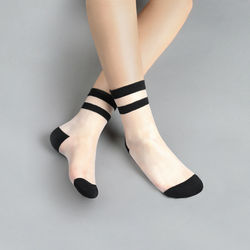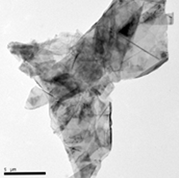GRAPHENE+POLYMER
The method of separating graphene from graphite differs depending on the use, but they succeeded in separating graphene with super-particles. Later, in 2018, it succeeded in developing single-layer high-purity graphene raw materials, and in 2019, it developed liquid-type graphene raw materials instead of the existing powder method. Finally, through the original technology of combining heterogeneous materials called GMGP (Graphene Modification Grafting Polymerization), stable bonding of graphene and PET polymer was achieved.
Huvis and Neoenpra who are in collaboration with THE GRAPHENE, have conducted pilot-level tests to produce graphene fibers since March 2020. After seven trials to increase the purity of graphene, they finally succeeded in developing high-purity graphene fibers. Obtaining pure single-layer graphene from graphite is extremely expensive and it is impossible to mass-produce as fiber. Huvis has developed a way to mass-produce graphene fibers by adding graphene that is separated into approximately 1-5 layers. High-purity graphene enables the production of white-colored yarn, which can then be transformed into fabrics of various colors with excellent dyeability.
Graphene fiber possesses inherent antibacterial, antifungal, antiviral, far-infrared ray emission, and antistatic properties without requiring special treatment, enabling a wide array of applications. Previously limited to research labs, graphene fibers can now become an integral part of everyday life.
CONTRAST WITH Existing GRAPHENE
Graphene fiber is produced as a yarn by injecting graphene into a fiber process. Until now, high-purity graphene fiber has been possible only at the research stage. This is because graphene, a combination of carbon, has poor dispersibility and is not easy to synthesize with PET (polyester) polymers. So, most of the commercialized graphene fibers have lower graphene content or compromised purity by coating the graphene material on the fiber, so there is a limit to calling it a true graphene fiber. This is the reason why commercially available graphene fibers are black or gray. However, our product can be produced with white-colored yarn using high-purity graphene, and with excellent dyeability, it can be produced with various-colored fabrics.
Typically, functional textiles are created through a coating process, which has the downside of losing effectiveness after multiple washes or high-temperature washing with detergents. Companies claiming to use graphene in their underwear or masks, employ this level of graphene coating on the fabric.
However, this approach results in graphene particles being too thick to function optimally, causing the coating to peel off quickly from the yarn and potentially impacting health adversely.
In contrast, by directly manufacturing yarn using a material that combines high-purity graphene with thin layers, we ensure the graphene is integrated into the yarn. Consequently, the graphene particles remain intact even after boiling and washing with laundry detergent, maintaining the various inherent functions of graphene. This distinguishing feature is consistently preserved and highlighted in our products.

GRAPHENE

POLYMER

GRAPHENE
POLYMER

GRAPHENE
POLYMER YARN
 Grey Bed with Quilt |  Fashion Model |  Female Tennis Player |
|---|---|---|
 Casual Wear |  Boxer Pants |  Black Cap |
 Yoga Pose |  Transparent Socks |
FUNCTIONALITY
"PURE GRAPHENE” TEM Analysis Picture
BEFORE Impregnation & Extrusion Process




GRAPHENE OXIDE (POWDER) : 7~8 Layers




GRAPHENE OXIDE (Liquid) : 1-2 Layers
Graphene Polymer Impregnated Pore (Intermediate Product) TEM Analysis
TEM
OPTICAL MICROSCOPR




Graphene Polymer Resin
(Finished Product) TEM Analysis
TEM
OPTICAL MICROSCOPR




❖GO (0.1 wt%) is perfectly dispersed and bound to the polymer (PET) ❖




GO/PA Fiber
1.6 denier) Analysis

(GO Content: 0.05 wt%)




Cross Section
Lateral View
GO/PET Fiber
(2.7 denier) Analysis

(GO Content: 0.05 wt%)




Lateral View
Cross Section
Improvement of physical properties of polyethylene (PE)-based Polymers
-
By enhancing the durability of PE products, they become more appealing to consumers
-
Film: reduced gas permeability, anti-static, improved processability
-
Food containers/children’s products: antibacterial/antiviral function, increased wear & tear resistance
Improvement of physical properties of polypropylene (PP)-based polymers
-
Film packaging: reduced gas permeability
-
Automotive parts: Increased weather resistance & mechanical strength, excellent anti-static effect
-
Electronics/Home appliances: Increased mechanical strength, excellent anti-static effect, and improved physical properties of PP can replace existing ABS materials
Improving physical properties of thermoplastic rubber
-
EVA (transparent): everyday products, shoes
-
EDPM series: bumper, weather strip
-
PVC: (transparent): weather strip, spiral hose, wire sheath
-
PP/PA : automotive rubber parts
-
PC/PBT : Bumper
Improvement of physical properties of thermosetting rubber
-
Tires: Increased compressive strength of tire (can develop colorful, light, fuel-efficient tires)
-
Shoes: High performance soles
-
Machinery parts: sealing material, O-ring
Improving Physical Properties of PVC Products
-
window frame
-
Large PIPE
-
wire covering material
-
Building Materials: Improved processability of flooring materials, wall materials, and calendaring products (anti-static)
▪Improvement of Physical Properties of Engineering Plastics
-
General use: HIPS, ABS
-
Transparent glass: PMMA, PC, PS (Improve weather resistance and scratch resistance: motorcycle windshield)
-
GF/CF reinforced plastic: Product performance upgrade, UV blocking effect
Improvement of Physical Properties of Polymer Foaming Agent
-
Styrofoam: Increased weatherability and mechanical strength
-
Expanded polyurethane: Prevention of emission of toxic combustion substances
-
Low-foaming structural material: Improvement of mechanical strength
Improving Physical Properties of Textile Products
-
Fibers for general fabrics: Static reduction, high durability, UV blocking, far-infrared radiation, antibacterial/antiviral effect
-
high-strength stretch fiber
-
Bulletproof fiber development possible
-
dust mask
-
Non-woven fabric: antibacterial filter, antiviral filter
-
Breathable fabric (outdoor fabric with Gore-Tex function)
-
RO membrane filter available
ADVANTAGE OF
GRAPHENE-POLYMER COMPOISTION
Value-Based Pricing
GRAPHENE
CERTIFICATE
HANG TAG
Our HANGTAG that certifies the efficacy of graphene, will further increase the value of your brand. Apparel products applied with GRAPHENE are recognized as products with high value. This provides opportunities for manufacturers to increase profitability and has a positive impact on the industry as a whole. In addition, if apparel products applied with GRAPHENE become more popular, interest in developing products using GRAPHENE will increase, which can also contribute to pioneering new markets.

